- News
- Reviews
- Bikes
- Components
- Bar tape & grips
- Bottom brackets
- Brake & gear cables
- Brake & STI levers
- Brake pads & spares
- Brakes
- Cassettes & freewheels
- Chains
- Chainsets & chainrings
- Derailleurs - front
- Derailleurs - rear
- Forks
- Gear levers & shifters
- Groupsets
- Handlebars & extensions
- Headsets
- Hubs
- Inner tubes
- Pedals
- Quick releases & skewers
- Saddles
- Seatposts
- Stems
- Wheels
- Tyres
- Tubeless valves
- Accessories
- Accessories - misc
- Computer mounts
- Bags
- Bar ends
- Bike bags & cases
- Bottle cages
- Bottles
- Cameras
- Car racks
- Child seats
- Computers
- Glasses
- GPS units
- Helmets
- Lights - front
- Lights - rear
- Lights - sets
- Locks
- Mirrors
- Mudguards
- Racks
- Pumps & CO2 inflators
- Puncture kits
- Reflectives
- Smart watches
- Stands and racks
- Trailers
- Clothing
- Health, fitness and nutrition
- Tools and workshop
- Miscellaneous
- Buyers Guides
- Features
- Forum
- Recommends
- Podcast
news
Chaos at cycling stage race as riders forced to dodge oncoming drivers “flying down road” at 120kph; Locals laugh as Bristol named UK’s “safest cycling city” – despite “appalling driving”; Did cycling bring Oasis back together? + more on the live blog
SUMMARY
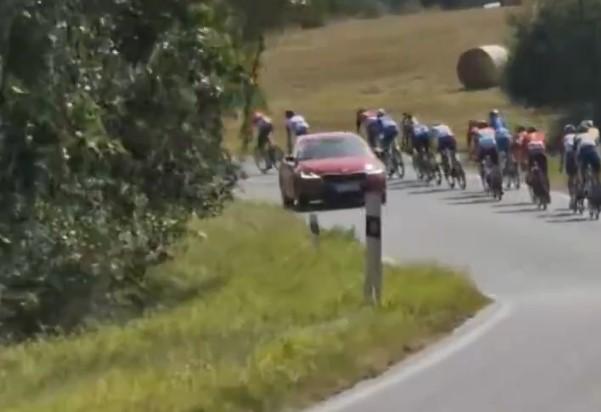 Chaos at West Bohemia Tour U23 race as riders forced to dodge oncoming drivers on open roads (Patrick Van Staeyen)
Chaos at West Bohemia Tour U23 race as riders forced to dodge oncoming drivers on open roads (Patrick Van Staeyen)27 August 2024, 08:07

“Lads, don’t take the inside line!” Chaos at cycling stage race as oncoming drivers “fly down road” and narrowly avoid hitting riders due to lack of road closures and marshals – with team bosses forced to shout “stay on the right!”
While catching up on all the bike racing going on over the Bank Holiday weekend – the highlights of which included a first ever British win at the Tour de l’Avenir courtesy of Joe Blackmore and the Vuelta’s GC race being blown wide open – I came across the inaugural edition of the West Bohemia Tour, a new four-day stage race in the Czech Republic for U23 riders and development teams.
And let’s just say the race has a few teething problems to sort out.
On Saturday, concerning footage emerged from the tour’s third stage – a hilly loop starting and finishing in Klatovy, and won by Soudal Quick-Step Devo’s 19-year-old Lars Vanden Heede – which highlighted some distinct and horrifying organisational problems that need to be ironed out before next year’s race.
Incredible scenes at the West Bohemia Tour, a 2.2 stage race for U23 riders.
No marshals closing off junctions. Oncoming traffic on the parcours. Luckily nobody was injured. Where is @UCI_cycling and @cpacycling, @HansenAdam in all of this? 😡
📹 Patrick Van Staeyen pic.twitter.com/9pTq7quleK
— Domestique (@Domestique___) August 24, 2024
The footage, filmed by a sports director who was following the lead group, showed the riders turning right at a junction onto another road, where no marshals – usually stationed at junctions to prevent members of the public from straying onto the course – were in place.
“They take the bend full gas,” the DS can be heard saying in Dutch in the video. “There is nobody here to stop traffic. Nobody.”
To make matters worse, the DS then filmed several occasions on which unsuspecting motorists found themselves driving straight towards the racers during what was supposedly meant to be a closed road event, leading to some shocking near misses on bends and on the race’s narrow roads.
“Lads, don’t do that! Don’t take the inside line Don’t do this!” the directors in the car shouted during one especially hairy moment on a blind left-hand bend (where many of the riders, doing what they normally do during well-organised events, made use of the entirety of the road, only to find a driver on the other side of the corner).
“Look at this car approaching!” the director again shouts as two drivers – and a leisure cyclist – pass the bunch in the opposite direction. “Watch out! This guy comes flying down this road at 120kph! Folks, watch out!”
And on another narrow, twisty section, he exclaimed: “Here are more cars! Of course he has to brake because it’s so narrow here!
“Of course cars will come down here. This is just an open main road! They are using the full width of the road, no lads, stay on the right!”
Responding to the video on social media, one user claiming to be the race’s doctor, said that 11 police motorbikes, 20 marshals, and two police cars were present at the race, which was eventually won after all that by Lotto Dstny’s Victor Vaneeckhoutte.
“That’s small gran fondo numbers,” one cycling fan responded to the claims.
“Those numbers seem far too low for a race that can be spread out over multiple groups,” replied the Domestique cycling account.
“Clearly something went massively wrong because the original 10-minute clip we saw did not show a single organiser vehicle or a single marshal.”
The worrying, chaotic scenes at the West Bohemia Tour over the weekend brought to mind the controversy which marred last year’s Tour Féminin des Pyrénées, the French stage race plagued by a range of safety issues that even prompted the peloton to refuse to start the third and final stage.
Last June, the UCI decided to call off the final stage of the CIC-Tour Féminin International des Pyrénées – only the second edition of the three-day race – following two days of protests from a peloton concerned for its safety.
On the first stage into Lourdes, won in a sprint by Ashleigh Moolman-Pasio, members of the public were seen driving on the course, metres away from the riders at times, and parked cars and trucks littered the final kilometres while spectators wandered onto the roads.
A day later, the second stage to the Hautacam was then neutralised to the foot of the iconic summit finish after the peloton complained of race motorbike riders creating hazardous conditions – leading the race organiser to criticise the protesting riders, who he described as “spoiled children”, comments for which he later apologised while also claiming it is “impossible” to completely close the roads in France for a bike race.
And you thought your local Saturday morning races were sketchy…
27 August 2024, 15:58

Is the Oasis reunion all about Noel wanting to buy a new bike?
Well, you didn’t think we’d go a whole day without trying to make this morning’s Oasis reunion all about cycling, did you?
Back in January, you may remember, we ‘reported’ on the live blog (it was a quiet month) that one half of British rock’s second-most influential set of brothers, Noel Gallagher, had claimed in a podcast interview that an upside of his recent multi-million-pound divorce from publicist Sara MacDonald was his ability to still go for a cycle when he wants in London.
“I can get on the bike and go up to King’s Cross, and go down to the canal,” the Don’t Look Back in Anger singer said at the time. “And get on the canal outside my wonderful ex-wife’s house and give her a little wave, and go, ‘You didn’t take this from me!’”
> Noel Gallagher says the only downside of cycling is "the f***ing helmet"
Aside from celebrating being able to keep his bike in the divorce, Noel also spoke back in 2020 about his love of cycling – but not of wearing a helmet, naturally (can’t be messing up that iconic haircut, can you?).
“I go out on the bike four days a week. I’m 53 now so it's not good to work out a lot, you’re ticking over,” he said.
“I can do two days in a row and have the third day off. I go uphill off-roading. I’m going 25k in an hour-and-a-half, it’s on country roads, there’s nobody on them.
“The only downside of the bike is the fucking helmet but what are you gonna do?”
And what does all this have to do with Oasis finally reuniting?
Well, considering that Noel’s £20 million divorce settlement is rumoured to be one of the, I imagine, several factors behind him kissing and making up with Liam, maybe he’s simply in the market for a new Colnago, and reckoned a few nights playing some 30-year-old tunes in Manchester, London, Cardiff, and Dublin would go a long way to sorting out the deposit?
Yep, that’s right, you heard it here first – it was cycling that brought back Oasis.
27 August 2024, 09:52
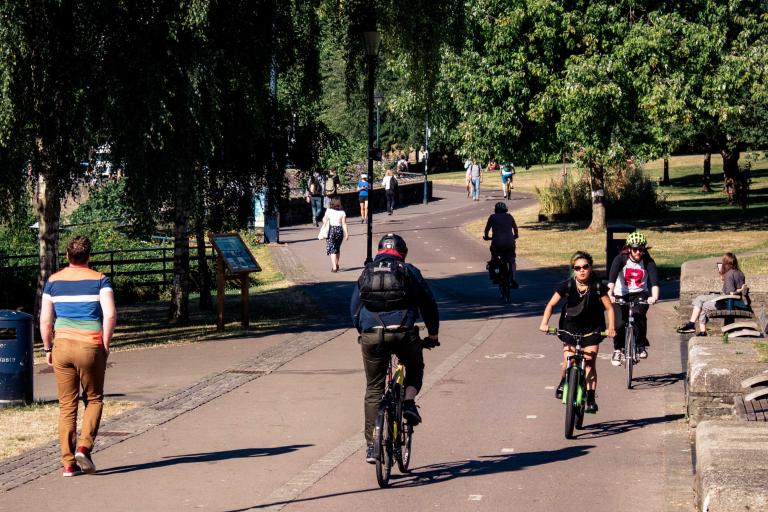
“Surely a city that is safe for cycling would need fewer cycle repair shops, not more?” Bristol named the UK’s “safest cycling city” by insurance company – but locals aren’t convinced
Alright everyone, get your pinch (or bucket) of salt at the ready – another insurance company has put out a press release naming the UK’s top ten “safest” cities for cycling.
And it’s as thorough as you’d expect.
The “comprehensive study of over 20 major British cities” – which is press release speak for ‘We spent 20 minutes on Google’ – was carried out by ALA Insurance, and awarded scores based on the following metrics: Number of reports about road defects via Fix My Street, number of cycle repair shops, annual traffic volumes, percentage of rain on any given day, and monthly wind speed.
Well, I’m not sure what rain, wind speed, or the number of bike shops have to do with safe cycling, but it’s not my study/crudely bashed out press release/terrible marketing strategy.
And the winner of this nonsensical Google randomiser? Bristol, apparently, which according to ALA Insurance scored a “perfect 100”.
“It outshines other cities with its extensive network of cycle repair shops—boasting 21 per 100,000 residents,” the insurance company says. “Whether you're a daily commuter or a weekend cyclist, Bristol's well-maintained roads and vibrant cycling community make it a top choice.”
Let’s just say that Bristol’s own cyclists aren’t very convinced by the study’s ‘findings’.
“Cycle paths with trees in the middle of them. Cycle paths rendered invisible by being the same colour as pavements. Cycle paths that spit cyclists out onto busy roads if the potholes on those same streets haven’t already thrown you over your handlebars,” began B24/7’s brilliantly ironic analysis of this latest, head-scratching internet list – which ended with a list of related articles on the Bristol-themed website, including ‘Three-quarters of people do not feel safe cycling in Bristol’ and ‘Tips to make cycling in Bristol less sh*t’.
Meanwhile, confusion also reigned over on the Bristol Cyclists Facebook page.
“Surely a city that is safe for cycling would need fewer cycle repair shops, not more?” asked Matt. Fair point.
“No mention of what actually makes it safe or unsafe… namely the behaviour of Bristol’s motorists. There’s a LOT of appalling driving out there,” concluded Al.
Ah, but you see, that doesn’t fit as nicely on an insurance company’s latest listicle…
27 August 2024, 15:36
The WVA all-terrain vehicle strikes again: Wout van Aert easily dispatches Quentin Pacher for impressive mountain breakaway victory, securing Vuelta stage hat-trick
After a tough start to the season, Wout van Aert is back to doing what he does best – which is basically everything.
The green jersey, given free rein to infiltrate the breakaways in recent days at the Vuelta, after bagging two sprint stages and as Visma-Lease a Bike teammate Sepp Kuss’ GC ambitions withered slightly, battled hard to get into today’s winning move over the opening second-cat Alto de Fonfría, before slipping into the five-rider group that would go on to contest the finish.
But instead of aiming to hang on to the coattails of, on paper, superior climbers such as Marc Soler, a confident Van Aert drifted clear at the intermediate sprint located at the foot of the Cat One Alto de Mougás, the final climb of the day before the plunge into Baiona.
Only Quentin Pacher was alert to the danger, but the Groupama-FDJ rider was unable to put the green jersey under any sort of pressure on the climb, and was easily dispatched at the finish in what may have been one of the most straightforward, and ruthlessly inevitable, two-up sprints of the entire season.
A WORK OF AERT! 🖌️
Wout van Aert wins Stage 10 and his third win at La Vuelta! 👏 #LaVuelta24 pic.twitter.com/bGePuGh2rz
— Eurosport (@eurosport) August 27, 2024
Wout van Aert is back.
“It was really my aim to be in the breakaway, but I had a hard time on the first climb and almost gave up,” the Belgian, three stages to the good at this Vuelta after a frustrating Tour spent rebuilding his form following a spring classics-ending crash earlier in the year.
“I gave one more try just before the top, but for 50 kilometres we really had to fight to get a gap. But to be honest, I think that worked in my favour in the final, because the climbers in the group had less fresh legs, and that’s how I won.”
Meanwhile, five and a half minutes behind the Van Aert show, the GC contenders took the opportunity of a second straight rest day (relatively speaking), all rolling in together as Ben O’Connor retained his almost four-minute lead on GC over Primož Roglič, ahead of another punchy, potentially dangerous stage tomorrow.
27 August 2024, 15:11
UK trade authority to review anti-dumping measures on bikes and components from China
27 August 2024, 14:53
Five-year-old mountain biker leads group of beginner adults during unique session with the aim of “pushing people out of their comfort zone”
A group of newbie cyclists enjoyed one of their unique beginner mountain bike sessions we’ve seen over the years, as five-year-old Bo Barnes led the group of adults around the trail, as part of a programme encouraging people to push themselves out of their comfort zone and try new things.
The session, titled the Don’t Crash Course and put on by cyclewear brand Endura, saw a group of beginner off-roaders, all aged between 31 and 59, take to the trails alongside Bo and his dad, pro mountain biker Joe Barnes, as father and son gave a masterclass and offered tips on how to embrace the trails.
According to Endura, the aim of the Bo-led session, which took place at Bedgebury Forest in Kent, was to “remind grown-up participants not to concern themselves with what they might look like, how they might feel, or fears around not ‘fitting in’ to instead embrace the thrill of youthful excitement often lost as we get older”.
The event was inspired by a recent survey which saw 52 per cent of adults admit they’re not very good at pushing themselves out of their comfort zones, with as many as four in ten adults believing they’re ‘too old’ to be a beginner.
Meanwhile, more than a third (35 per cent) of respondents cited concerns about hurting themselves getting in the way of trying something new and exciting.
“The reason trying something new can be so daunting is often rooted in social anxieties – worries about not fitting in, lacking the right gear, or feeling too old, or inexperienced,” Dr Abdi Mohamed, a NHS Senior Psychologist, said.
“These anxieties can create significant barriers, making it difficult for individuals to take that first step towards new experiences. By adopting a positive mindset, the feelings of inadequacy and self-doubt can be significantly reduced.
“Overcoming the fear of the unknown is a critical step in building self-confidence, allowing individuals to embrace new challenges with a sense of belonging. This journey not only fosters personal growth but also opens the door to a more fulfilling and active lifestyle.”
27 August 2024, 14:29
Guilio Ciccone abandons Vuelta with knee pain, days after wild deer crashed into him while crossing the road
Saturday’s bizarre crash at the Vuelta – caused by three startled deer crossing the road right in the middle of the peloton, bringing down Lidl-Trek’s Giulio Ciccone and Euskatel-Euskadi’s Txomin Juaristi in the process – has claimed its first casualty, as Ciccone has just pulled out of the race this afternoon, suffering from the knee pain he sustained after being hit by the course-crashing animal.
“Sadly Guilio Ciccone has been forced to abandon the Vuelta after suffering with knee pain since his crash at the weekend. Speedy recovery Cicco!” the Italian’s Lidl-Trek team confirmed on social media.
27 August 2024, 13:55
“Let us all observe a moment of silence, and look upon this vision of insanity with immense awe”
Now, we’ve seen some truly awful stuff over on the Trench Tales Instagram page over the years, from “toothless wonder” jockey wheels and horribly bodged valve-hiding rims to a couple of the most abused and rustiest rust buckets you’re ever likely to see grace a bike shop’s doors.
But today’s latest example of ‘Your Bike Hates You’ is, in the words of Trench Tales themselves, “something very, very special” from the world of mountain biking – featuring one of the wildest braking/suspension systems you’re ever going to see:
Wow. As road.cc editor Jack just said when he was shown the ‘forklift’ in action, “That’s phenomenal. In the worst possible way, obviously.”
“Let us all observe a moment of silence, and look upon this vision of insanity with immense awe,” the astonished bike mechanic behind the Trench Tales account wrote on Instagram.
“Stay in the trenches long enough, and there may come a time – or many – when you lose your way, and end up doing the kind of wacky work that lands you on pages like this.
“Aside from the sheer visual beauty of this fail, I love how the leg-lifting action makes this the only setup I’ve seen with front-end brake dive on tap, even when stationary. I can’t love this enough.”
“Not to mention complete loss of front brake as the fork moves through its travel. It’s beautiful,” added Rick.
I think cycling has peaked, ladies and gentlemen.
27 August 2024, 13:27
WVA on the attack… again
Visma-Lease a Bike DS during morning meeting: ‘So Wout, it’s another mountain day, so don’t worry about the breakaway today. Just take it easy and sit in the bunch, rest your legs.’
Wout van Aert: Proceeds to attack from the first kilometre and makes it into the break of the day…
😏 Has there been a stage without a Wout attack yet? The Green Jersey was on the attack in the first kilometre 💚
¿En qué etapa no ha atacado Wout van Aert? 🤪 ¡El líder 💚 lo ha intentado en los primeros km!#LaVuelta24 pic.twitter.com/EEWasPaV9r
— La Vuelta (@lavuelta) August 27, 2024
Well, I suppose with the lack of sprint, or even punchy, stages on offer at this year’s Vuelta, and with Sepp Kuss not really mounting a serious GC challenge, Wout has to keep himself occupied, doesn’t he?
27 August 2024, 12:39
Another Covid positive hits the Vuelta peloton, as Ineos Grenadiers rider Laurens De Plus forced to abandon Vuelta this morning with illness
Laurens De Plus won’t start stage 10 of #LaVuelta24. Laurens reported feeling unwell this morning and he’s subsequently tested positive for a Covid 19 infection.
Wishing you a speedy recovery Laurens. pic.twitter.com/jcE15Qh8KV
— INEOS Grenadiers (@INEOSGrenadiers) August 27, 2024
27 August 2024, 11:56
Jonas Vingegaard’s 2024 season is over, confirm Visma-Lease a Bike
In other Visma-Lease a Bike news this lunchtime, the Dutch squad have confirmed that Jonas Vingegaard’s 2024 season is over, with the two-time Tour de France winner now expected to rest up before focusing on his winter training.
After a horrific crash at the Tour of the Basque Country almost put an end to his season in April, the Dane produced a staggering comeback to finish second behind Tadej Pogačar at the Tour de France last month. He then recorded a DNF at the Donostia San Sebastian Klasikoa, before beating Diego Ulissi by 13 seconds to win the Tour of Poland, in what turned out to be his last race of the year.
(A.S.O/Charly Lopez)
Despite being pencilled in for a possible tilt at next month’s very hilly worlds course in Zurich, Visma-Lease a Bike instead confirmed today to Velo that Vingegaard has took part in his last race of 2024.
“Jonas is done for the year. His wife is giving birth to their second child soon, and as an athlete, he needs to recuperate after this intense spring and summer,” the team said in a short statement.
27 August 2024, 11:41
‘Salary demands? Just give me the biggest chainring you have’: Visma-Lease a Bike confirm re-signing of Victor Campenaerts
Yep, Tour de France and Giro d’Italia stage winner, former Hour Record holder, breakaway sniffer (and killer), and narrow handlebar and massive chainring aficionado Victor Campenaerts has confirmed his return to Visma-Lease a Bike after seven years away from the Dutch squad.
So expect more of Campenaerts drilling it on the front of the bunch, this time for Jonas Vingegaard and Wout van Aert, over the next few years. And, apparently, more of this kind of social media ‘content’…
No, I’m not really sure what that was either.
27 August 2024, 11:06
“It was about suffering all the way up. I was completely empty by the finish. I gave it everything”: Joe Blackmore makes history by becoming first British rider to win Tour de l’Avenir
Despite its status as the U23 version of the Tour de France, the Tour de l’Avenir isn’t always a reliable indicator of future cycling stardom.
However, with previous winners including Tadej Pogačar, Egan Bernal, Nairo Quintana, and David Gaudu, it’s certainly worth keeping an eye on what youngsters are dominating the GC battle at cycling’s most prestigious U23 stage race.
And this year, history was made as Joe Blackmore became the first British rider to win the Tour de l’Avenir in the race’s 63-year history, as the rider from Sidcup held on to beat teenage Spanish sensation Pablo Torres by just 12 seconds in a nail-biting, dramatic finale on the brutal Colle delle Finestre.
Blackmore, already a pro with Israel-Premier Tech, took the yellow jersey with a stage win at La Rosière on stage three, before ceding it almost immediately the next day to Torres. However, the 21-year-old then infiltrated the winning move to Condoue on stage five, putting almost five minutes into Torres and regaining the overall lead.
The 18-year-old UAE Gen Z rider wasn’t done, however, launching a stunning move on the race’s final climb up the super steep, gravelled Colle delle Finestre (the scene of Chris Froome’s Giro-winning attack in 2018).
Torres – cementing his status as a future star – put over four minutes into everyone on the 2,180m-high monster. Everyone except Blackmore that is, who dug deep to finish 3.53 behind the rampaging Spaniard and to hold on to the overall win by just 12 seconds.
What is it with French stage races and dramatic endings this month?
“It was super close, but I’m so happy,” Blackmore said after making British history – just – at the Tour de l’Avenir. “At the moment I’m really happy – it was a great team effort.
“I just had to give everything in the final. I tried to follow Pablo at the start but quickly realised it’s a long climb. Torres was riding really quickly and I knew it went high – 2,100 metres. I gave 100 per cent in the final two kilometres but I didn’t want to go too hard, too soon.
“It was about suffering all the way up. I was completely empty by the finish. I gave it everything.”
With yet another big win under his belt – at the Tour de France of the Future no less – during what has been a breakout 2024, Blackmore will now turn his attention to racing on home roads at the Tour of Britain next week, just in case you want to get a glimpse of Britain’s next grand tour winner.
No pressure, Joe…
27 August 2024, 10:44
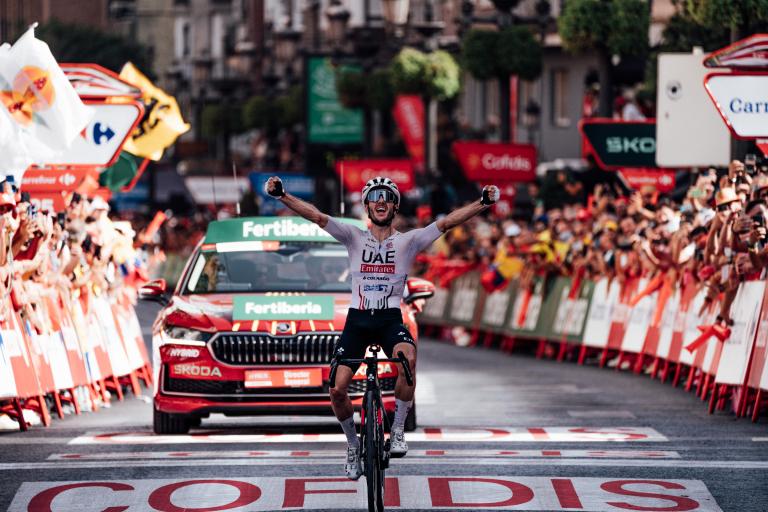
The Vuelta’s back and – you guessed it – we’ve got another big day in the mountains coming up
With both this year’s Giro and Tour morphing into Pogi procession by the second week, we exit the Vuelta a España’s first rest day with a real humdinger of a race on our hands.
After a topsy turvy opening nine stages, Netflix star Ben O’Connor remains in the red jersey, 3.53 ahead of Primož Roglič, whose relentless pursuit of the Australian was hampered somewhat by Sunday’s less than convincing ride.
Meanwhile, Sunday’s attacking 1-2, Adam Yates and Richard Carapaz, have catapulted themselves back into GC contention (with Yates’ emotional solo win and belated arrival in the top ten overall a coup for UAE after João Almeida’s Covid abandon). Mikel Landa is also looking consistently impressive in the mountains, while his compatriot Enric Mas currently appears to be the strongest rider in the race, as Spain bids to end its decade-long drought at its home grand tour.
(Zac Williams/SWpix.com)
And while most grand tours at this point would briefly shift away from the GC narrative to focus on a few sprint or breakaway subplots, that’s just not the Vuelta’s style.
Today, we’ve got more mountains in the script, on a stage nicely teed up for an ambush and where the post-rest day blues could set in for a few riders targeting the overall:
That Cat 2 right from the gun, straight after a rest day? That’s just cruel.
27 August 2024, 10:25
Schools are nearly back, there’s a chill in the air, and a debate on cycling safety is due to take place in the House of Lords – Yes, Autumn has arrived folks
27 August 2024, 09:21
Bank Holiday news round-up
In case you were out enjoying the last Bank Holiday of the ‘summer’, or you were too busy refreshing the Oasis homepage, here’s what you may have missed yesterday on the site:
> UK Sport warned British Cycling that Shell sponsorship deal could expose them to “legal and reputational risk”, reveals FOI request
> Gold medal-winning cyclist could miss UCI World Championships after not getting asylum interview for refugee status in the UK despite waiting for almost a year
> Wild scenes at Vuelta a España as herds of deer crossing the road jump over race cars and cause crash in the peloton, bringing down two riders
And that Vuelta/deer story (bike races, they’re just so chaotic, aren’t they?) was topped off by Adwitiya’s superb Clash reference accompanying the article on social media.
Altogether now: ‘Spanish deer in Andalucía, the crashing riders in the heat of 39…’
Brilliant.
And finally, we had the cycling clash of the weekend on road.cc’s YouTube channel: Remco v Jamie v Jamie’s Mum:
> Just how fast are pro cyclists? We set out to see how far we could ride going as fast as Remco Evenepoel
And you thought the Vuelta was exciting...
After obtaining a PhD, lecturing, and hosting a history podcast at Queen’s University Belfast, Ryan joined road.cc in December 2021 and since then has kept the site’s readers and listeners informed and enthralled (well at least occasionally) on news, the live blog, and the road.cc Podcast. After boarding a wrong bus at the world championships and ruining a good pair of jeans at the cyclocross, he now serves as road.cc’s senior news writer. Before his foray into cycling journalism, he wallowed in the equally pitiless world of academia, where he wrote a book about Victorian politics and droned on about cycling and bikes to classes of bored students (while taking every chance he could get to talk about cycling in print or on the radio). He can be found riding his bike very slowly around the narrow, scenic country lanes of Co. Down.
Latest Comments
- imajez 1 min 43 sec ago
I never pay attention to Facebook suggestions/ads, but the very beautiful and clever split frame design in a Feather Cyles post caught my eye. It...
- belugabob 11 min 29 sec ago
Or we could adopt the Japanese approach.....
- chrisonabike 26 min 23 sec ago
Agreed, but in the UK we have policing which to a greater or lesser extent relies on assistance from members of the public. So part of that...
- PoorInRichfield 27 min 52 sec ago
I've been beating the "please provide actual wide shoes" drum for over a decade, but it doesn't appear as though road cycling shoe manufacturers...
- SecretSam 40 min 33 sec ago
Maybe take some drugs to calm your nerves...
- SecretSam 41 min 26 sec ago
So...don't cycle on it. Lots of other routes around that area. Source: I used to work there.
- jaymack 43 min 9 sec ago
I'm not sure that aero carbon fiber bike would have been much use in such circumstances. But a gravel bike, well that's another story...
- Hirsute 46 min 11 sec ago
Armando Iannucci "Today is Day One of humanity’s Idiolithic Era."
- Steve K 1 hour 59 sec ago
My photochromic specs have just turned up in the post today
- Paul J 1 hour 7 min ago
Downhill Alpe d'Huez TT would be _awesome_. And someone should organise one for real!...
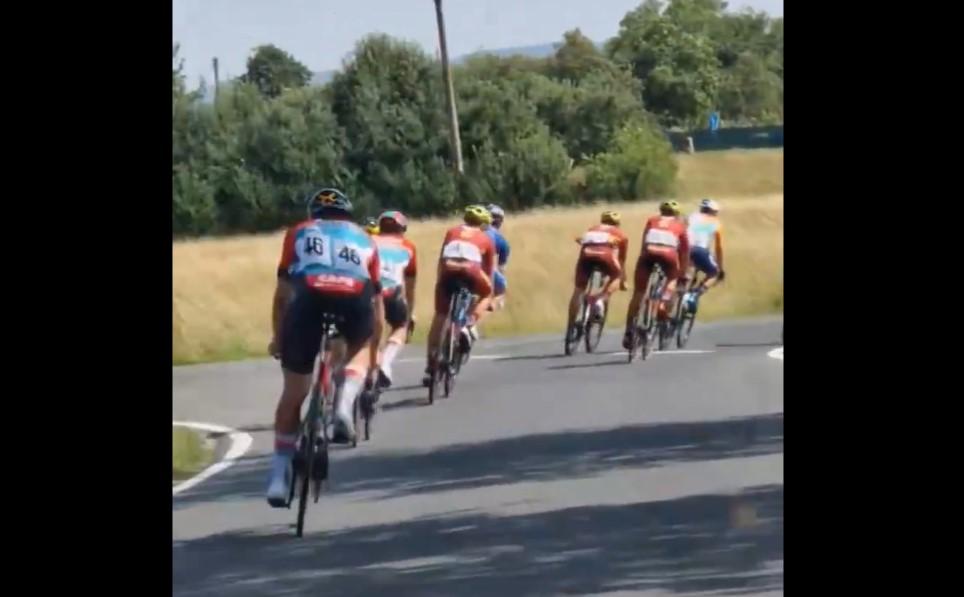
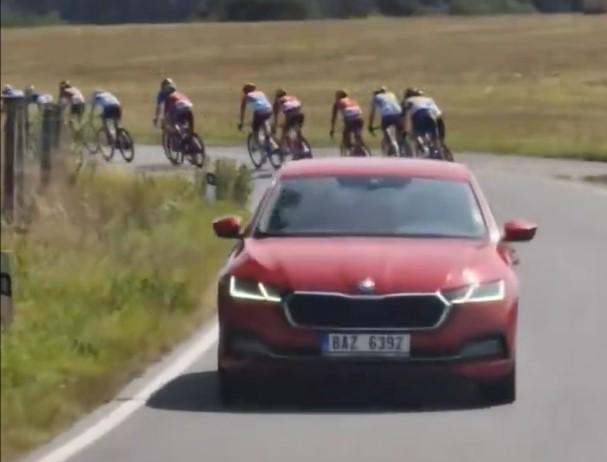
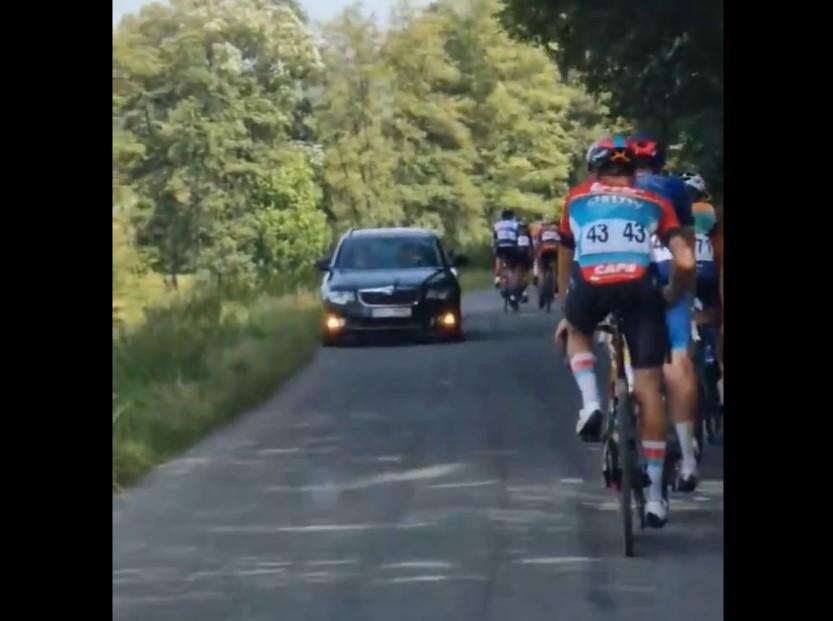
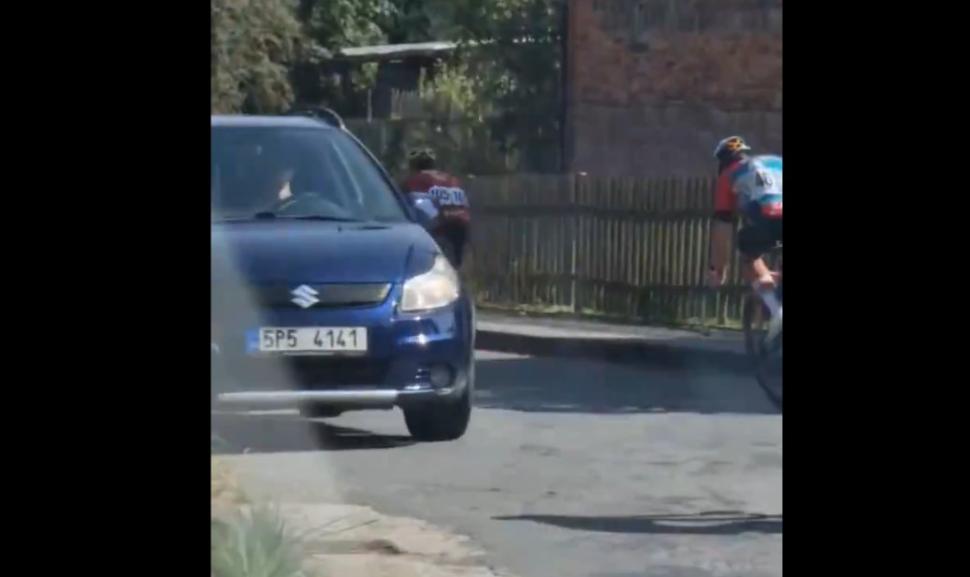
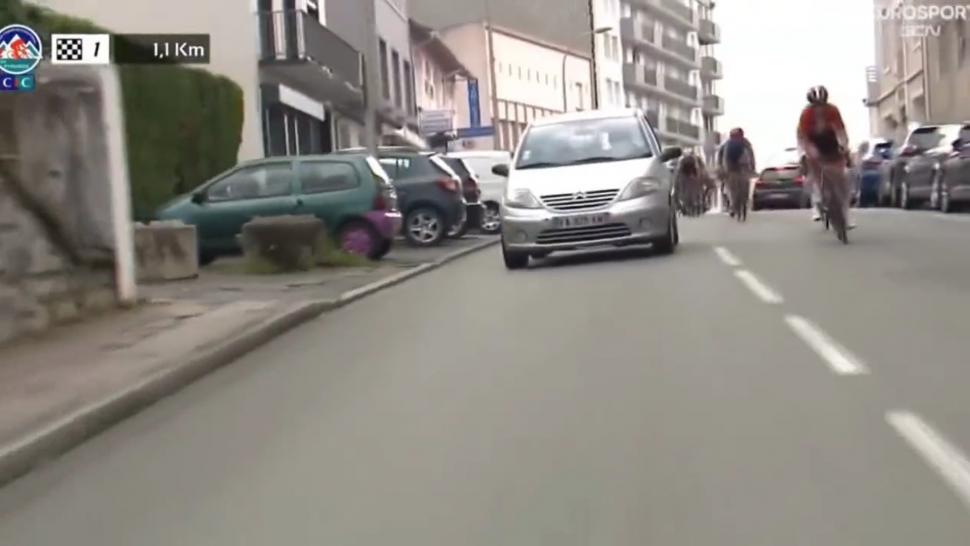
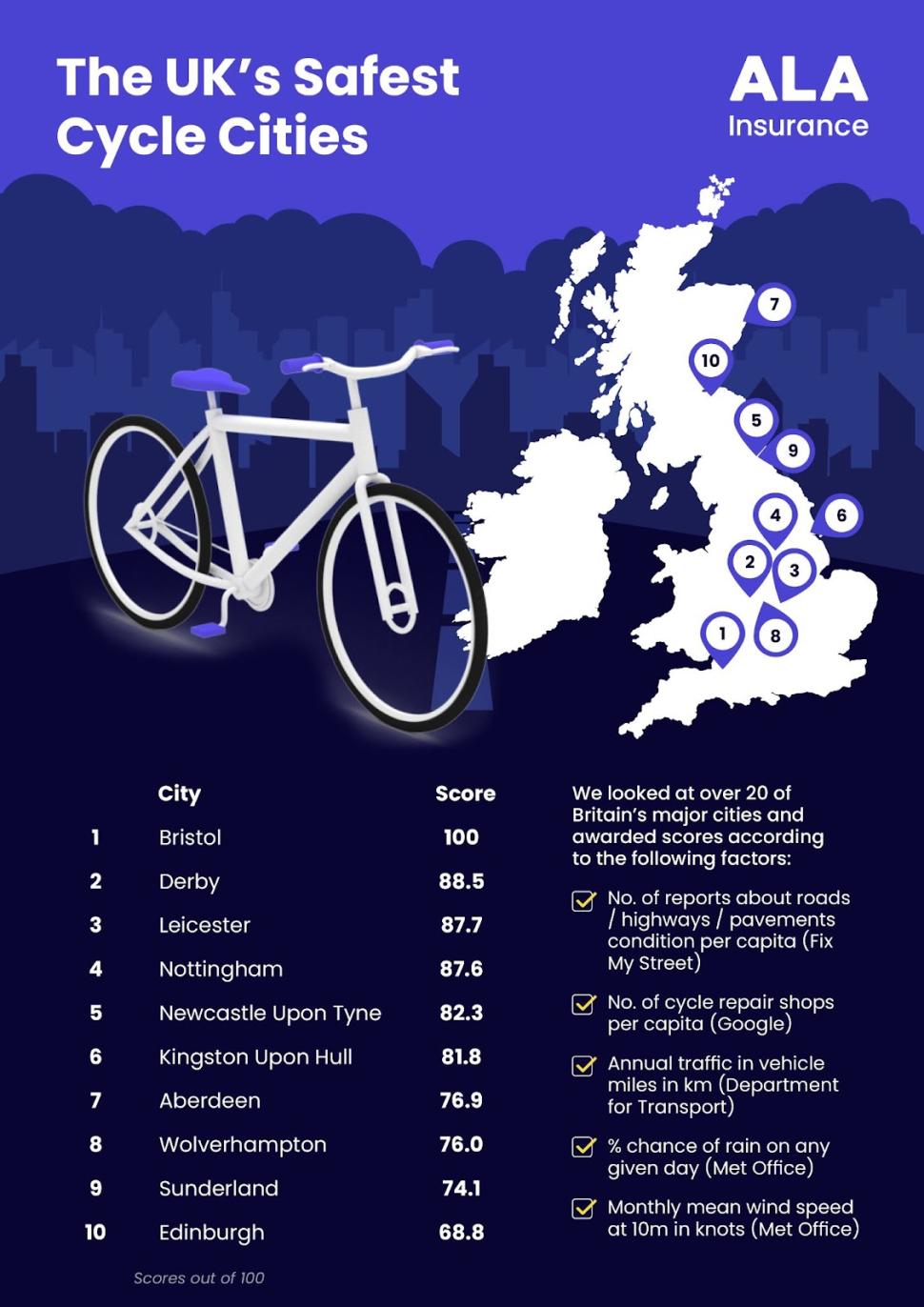
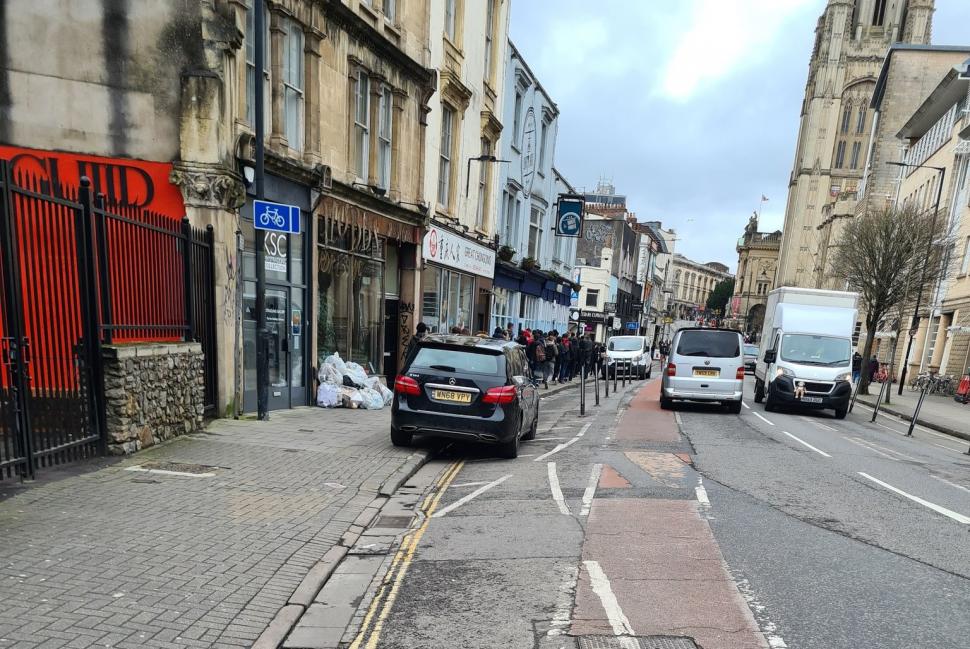
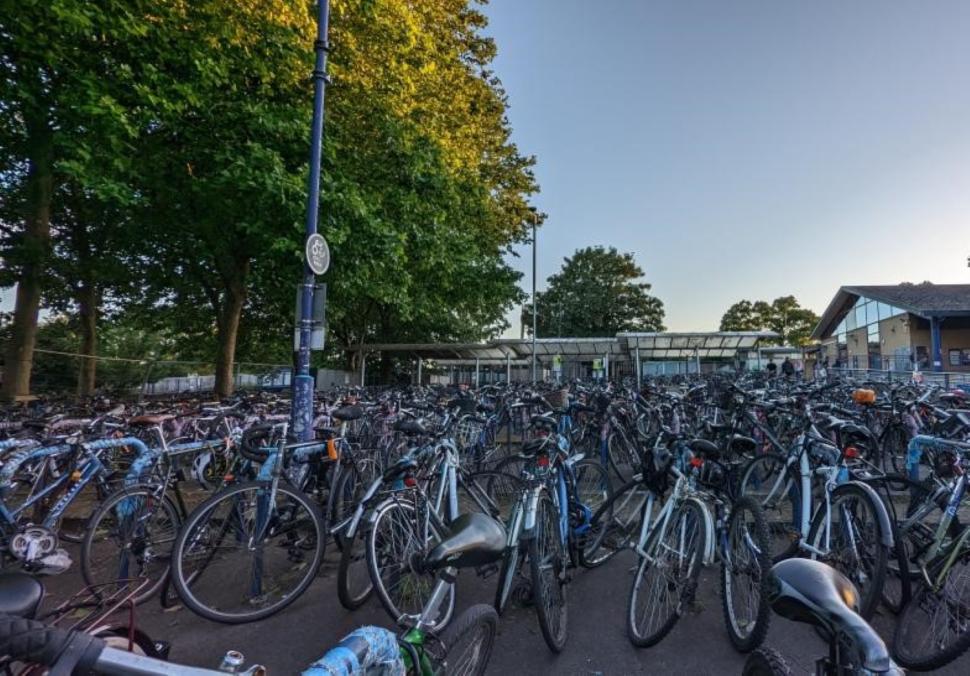

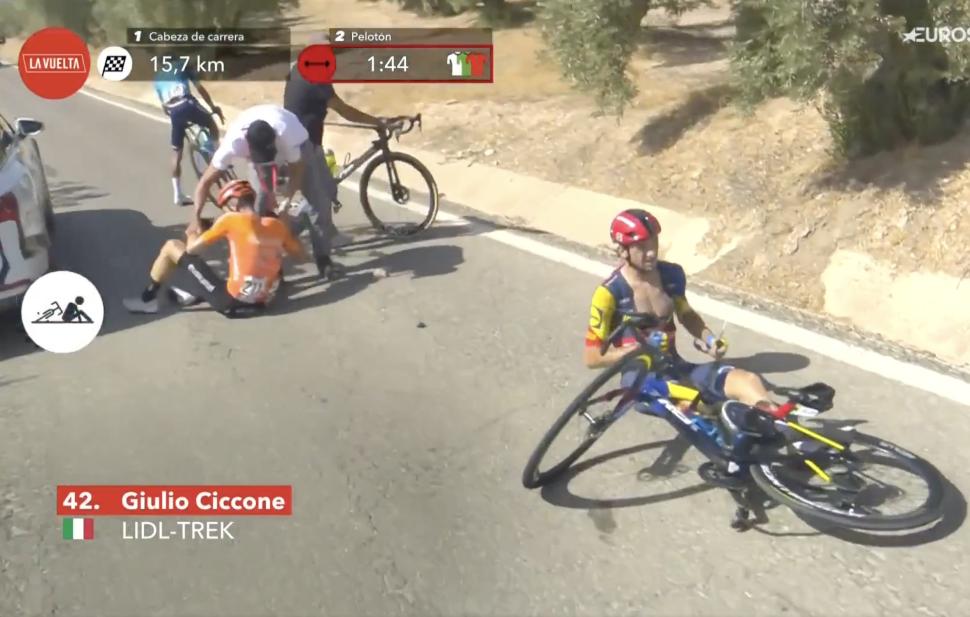
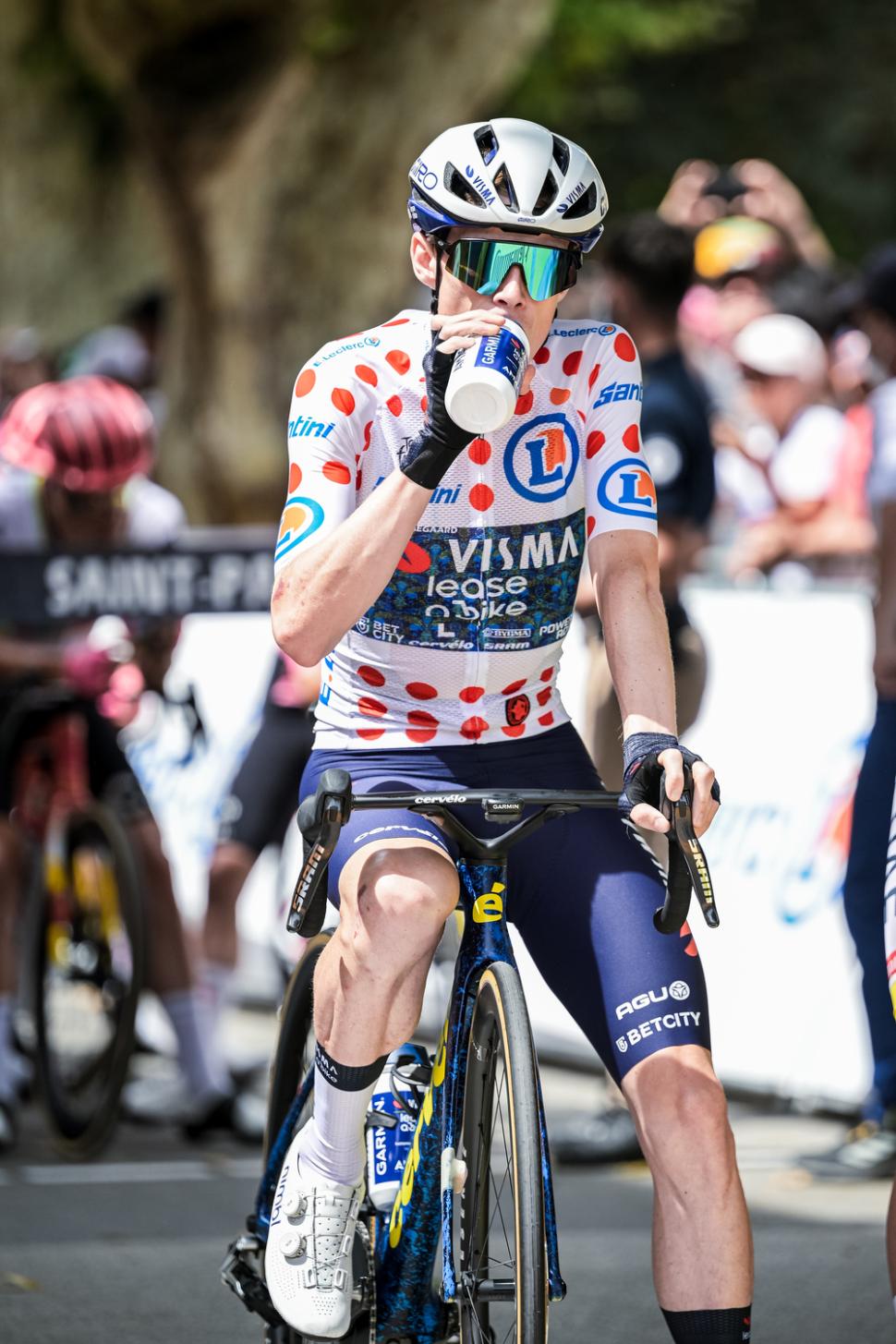
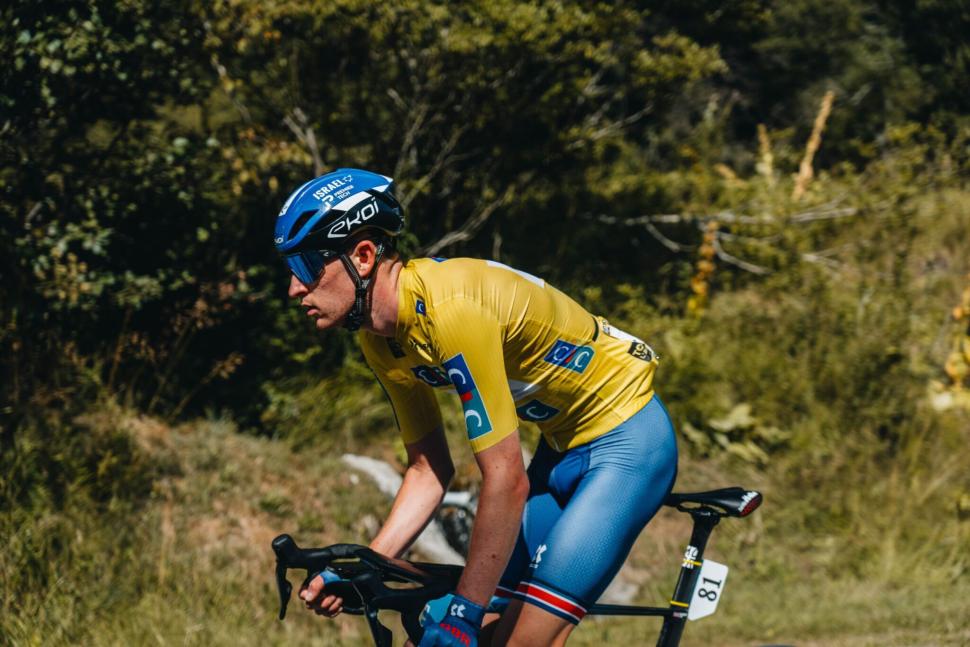

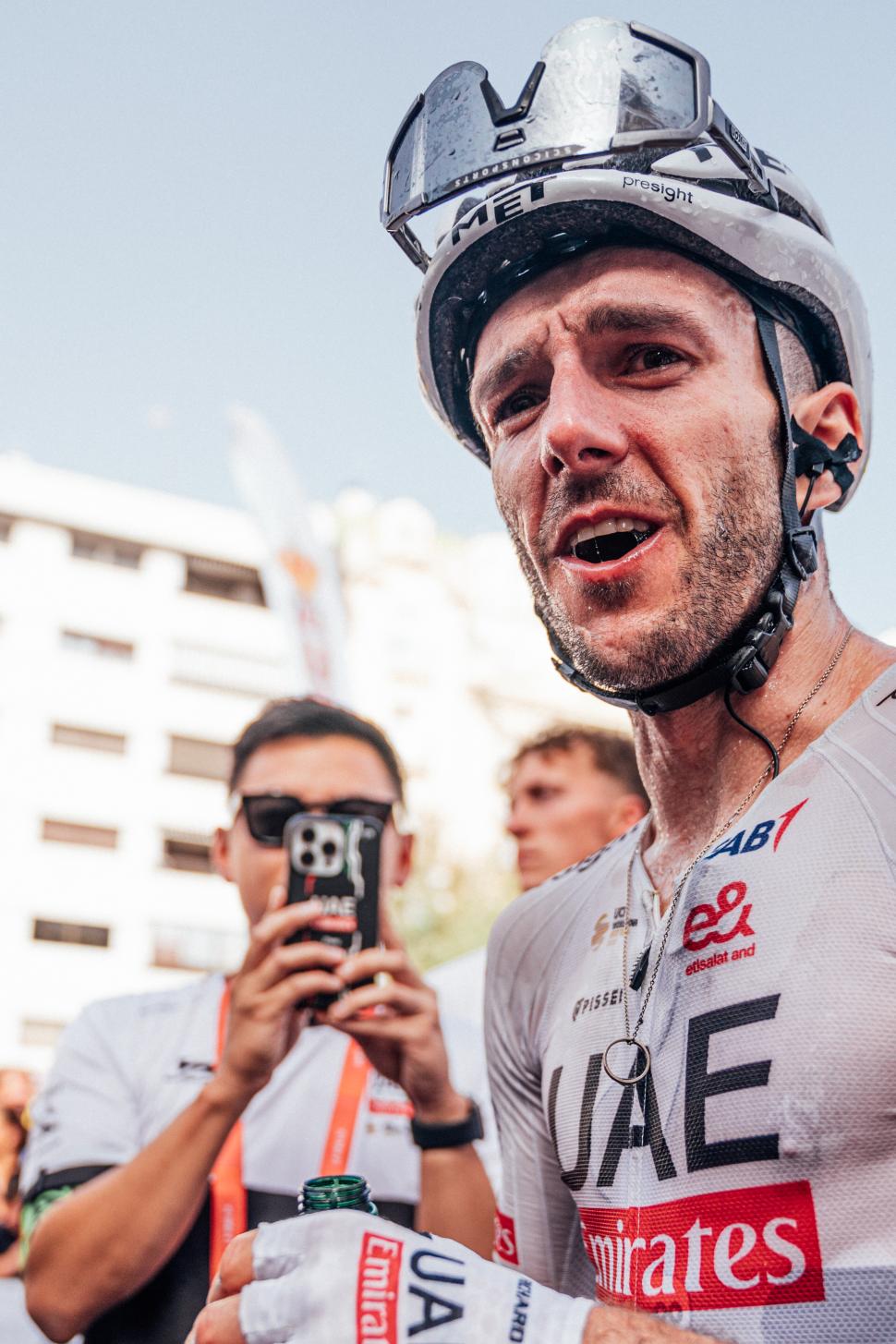
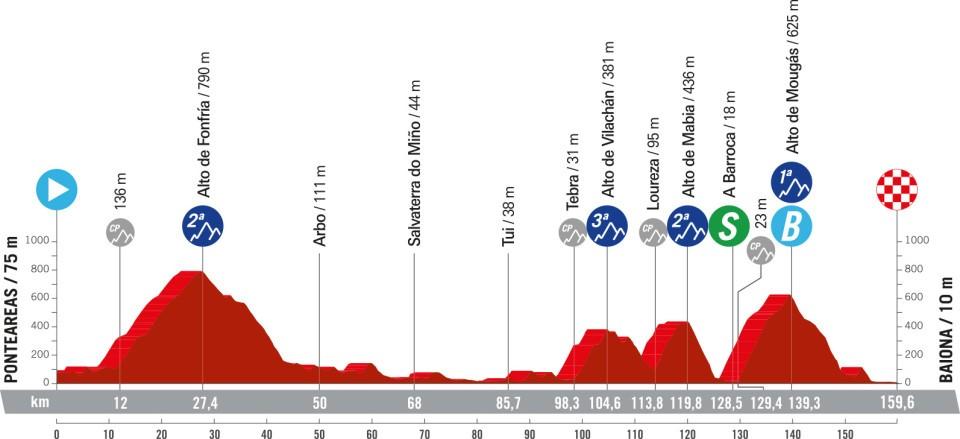
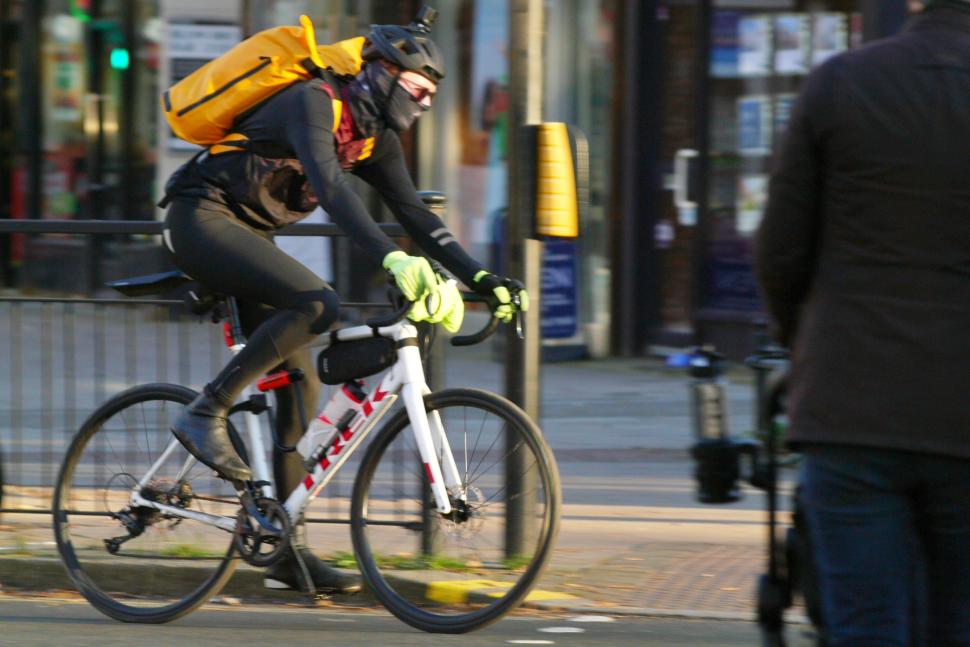


Add new comment
26 comments
Surely the most important measure of how safe a city is for cycling, should be the amount of good quality cycling infrastructure it has?! I don't know what it's like to cycle in all of the cities on that list, but I do know that Derby should not be anywhere near the top of it, or on the list at all for that matter!
Or just count the "votes" - just work out the modal share for cycling (beware - there have been accusations of people fiddling these figures...)
If cycling is safe and convenient, people will cycle. The caveat is necessary because - like Milton Keynes or Stevenage - if it's relatively safe to cycle but really convenient to drive people will drive. If cycling is "safe" but there's nowhere secure to park your bike, people will drive / take public transport.
This was a survey of the UK. You missed a key word, "connected", the small pockets of good quality cycling infrastructure typically amount to nothing, because they are rarely connected or go anywhere useful.
I'm curious about the number of reports on fixmystreet. Is a high number good (as it might indicate lots of cyclists to report issues) or a low number (council is fixing issues before they get reported (personally, I don't think this is possible)).
"Surely a city safe for cyclists needs fewer repair shops". Weird comment. Regardless as to whether Bristol is safe or not, if it's safe and more people ride, then they need more repair shops.
This channel has many comments that, effectively, mock new and occasional cyclists. Most people have little to no experience of servicing bicycles and don't have the tools or, quite likely, any history of fixing mechanical things. Nowadays, lots of people in multiple occupation houses and flats with nowhere to store tools or work on a bike. Having space and tools is a luxury indicating we can afford to own or rent such space and occasional use equipment.
Days when I could ride home after evening work and replace a broken rear wheel spoke in large hall of rented flat in Swiss Cottage are long gone. Affordable on a first job with a church project salary then, not now! In London, bike shops converting to repairs only: no profit in selling bikes. Lots of people need maintenance
I'm not sure what this comment relates to on this page - or is this a general complaint?
However I'm sure that there are some comments which come across as that - this site probably does have a slight "road" or even "competitive cycling" focus. But "many"? Citation needed...
You've brought this up before and I've the same comment - we could definitely do more to provide storage (see end). And there are lots of other measures we could (and should) take which would make this potentially liberating form of transport much easier to access. I still don't understand where some of your assertions are coming from though.
Yes - if you're in the "precariat" - on benefits or (perhaps worse) not and relying on minimum wage / gig / grey economy jobs then everything is going to be a fight. And you might have little time / energy, and stuff will likely get broken / lost / stolen more frequently. That's not just bikes though.
Nowhere to store tools? Odd comment - anyone who cycles probably carries all the basic bike tools with them on their bike. They'd almost all fit in a sock...
Can't afford tools? Basics - a pump, tyre fixing bits, couple of Allen keys / spanners? Probably in shops / online for around 20 quid. Dunno about London but where I stay (Edinburgh) there are quite a few charities / fix your bike or set up up schemes / places providing second-hand stuff for really cheap / Gumtree and Freecycle where these things appear.
Yes - bikes have a wide range of "standards" - but (mostly) the basics are ... basic. Particularly if you haven't got money for a "fancy" machine. If you want Park Tool or you're needing to braze a frame / face a bottom bracket then, well, yes. But if I had nothing but a matress on the floor at that point I'd not be after tools, I'd be looking for a different bike, because they can (sometimes sadly) be got for 100 quid or less...
Now I've no doubt in London my salary would barely rent me a cupboard in some parts. And by its nature (biggest city in UK by a long way, capital of England, long history of people from everywhere moving there for work) London likely has far more people in HMOs (at least in parts) than elsewhere.
FWIW when I stayed in such shared houses (not in London) I kept my bike in my room or the shared hall and did fettling there or outside. Not ideal but it kept me (basically) running.
However the general point that our housing stock, building guidelines and planning policies are not set up to provide properly for cycle storage etc. I heartily agree with. (Here's what we could be doing [1] [2]). And we still don't even seem to be following current guidelines - such as they are. I see new flats going up in Edinburgh apparently without such. (TBF these may have been signed off prior to regs, or maybe the cycle storage is just very well hidden).
True (ish - algthough I'd suggest it's a pretty weak proxy).
Pretty sure you're reading something in to a throwaway blog post line that just wasn't there now. I doubt the thought process went much beyond "dangerous roads would result in more incidents, meaning more things needing fixing, meaning more bike shops". It's flawed logic, but I don't see any mocking of anybody there (except those responsible for the lazy 'study').
Hey, we're in luck! The road.cc discussion based SEO content generator algorithm* has requested a cyclist toolkit based article!
https://road.cc/content/feature/beginners-guide-building-your-first-bike...
* has anyone else noticed that sometimes, stuff being discussed in the comments pops up in an above the fold article, often within hours?
re: safest city I guess the idea is the more you use your bike the more often it needs to be repaired. So the more bike shops the more people using their bikes. And people who don't feel safe cycling are less likely to use their bikes.
It's all those vigilante cyclists.
Not sure if this is HP or brooksby !!
https://youtu.be/rTUyRgddVj8?t=121
It's not me, I'm afraid
I think I've seen that clip before - absolutely perfect example of the motorist in the hairdresser car only looking for other motor vehicles, isn't it? I love how they stopped to exchange insurance details, too.
Ironically, had the cyclist not ridden through the earlier red light, the hairdresser car would have cleared the junction, and he'd have been perfectly safe and unmolested... Actions & Consequences...
You're right: and if the hairdresser driver had chosen to take the bus instead there would have been no conflict. And if a butterfly six miles to the south west had not flapped its wings then a moving tree branch might not have cast a shadow, which distracted a lorry driver, who forced the hairdresser driver to overtake. And… And… Actions and consequences…
He was in the cycle box - you can see the top of the helmet. The text on that clip also says he didn't run the red light.
Yep, perhaps Bigfoz meant that if he had cycled through the red light he would have been safe from "hairdresser car"
The "hairdresser car" would then have collided with the cyclist in the oncoming lane instead.
Not me, though I do cycle along there fairly often
As the article states the idea is just marketing.
Bristol named the UK’s “safest cycling city”
I want to see where these well maintained roads are
It's hard to imagine what the rest are like.
To make matters even worse, the DS was clearly filming using a handheld device whilst driving, which doesn't exactly enhance the safety levels for the riders or the other drivers using the road…
I'd love to see a copy of the risk assessment for the West Bohemia Tour…
It's not uncommon to have races on open roads in mainland Europe.
When I lived in Germany, I entered a race that was partially on a military training area range road. Armoured vehicles would often pass in the opposite direction. The road would be covered in mud from tracks as they turned into the road from training areas. It was manic. You get railway crossings - not uncommon even in pro classic races. Mostly drivers slow down as they see the peloton but if you're on your own or in a small group you're a bit exposed to traffic.
To close roads would be too cost prohibitive and most of the time these races go off without any major incidents.
The article says that it was supposed to be a closed-road event, though…
Yes, but I'm highlighting that races still happen with cars on the same road. It's not a strange concept.